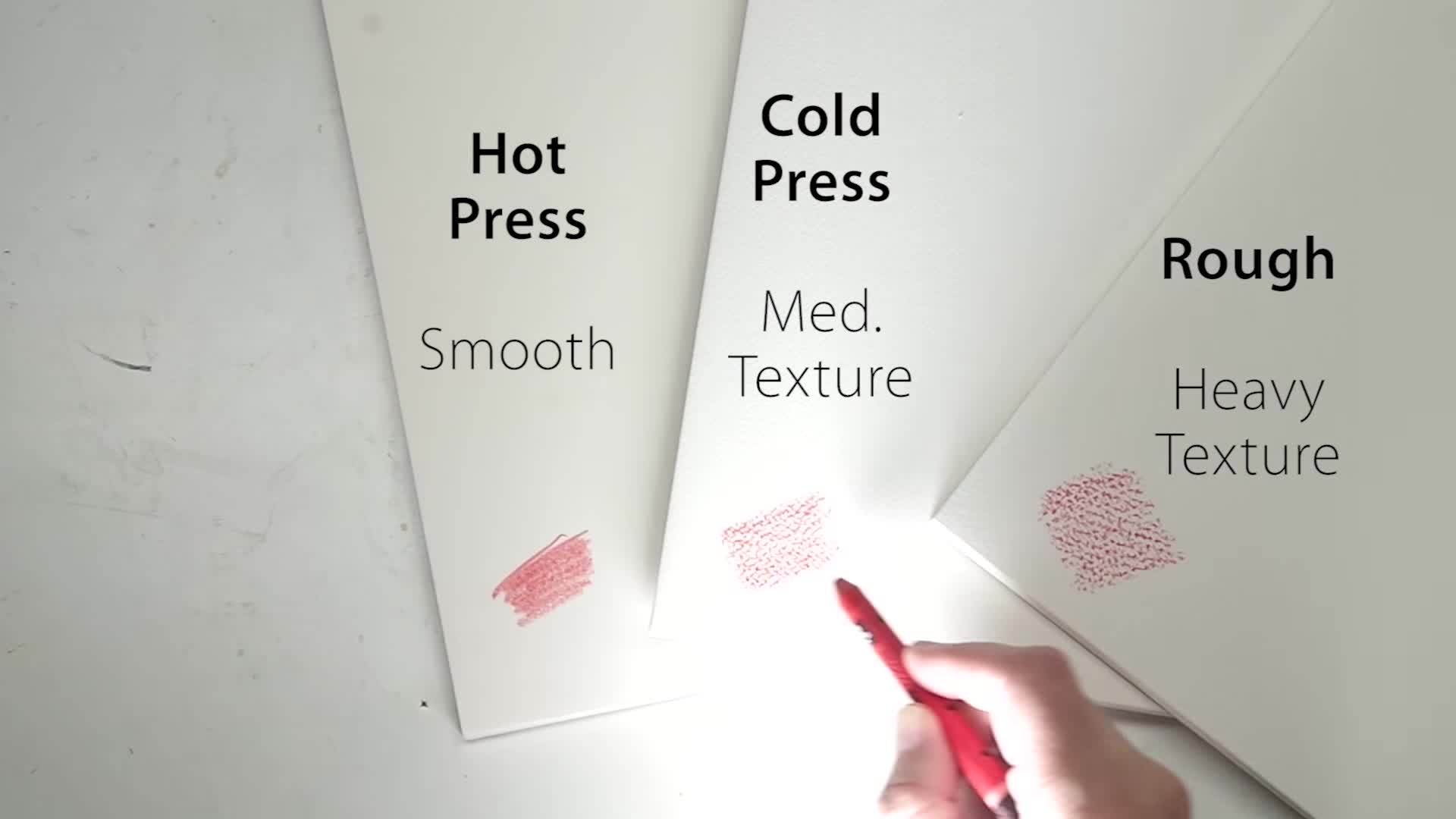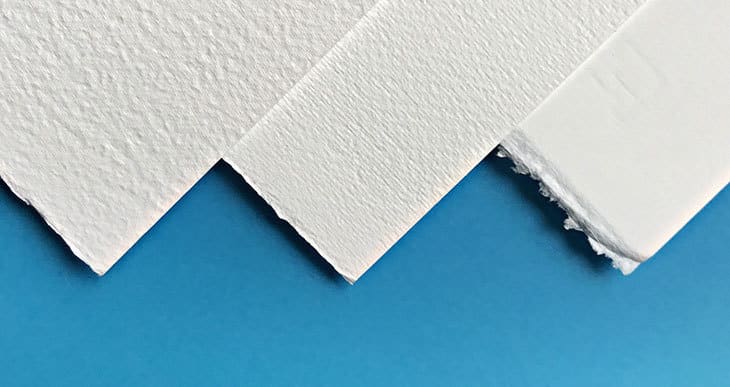Hot Vs Cold Press Watercolor Paper
If you're an artist who loves to paint with watercolors, you've undoubtedly heard about hot vs cold press watercolor paper. Both types of paper have their virtues, but depending on what you're looking for, one may be a better fit for your project than the other.
When it comes to hot vs cold press watercolor paper, there are a few things you'll want to keep in mind. For one thing, hot press paper tends to be smoother and less textured than cold press paper. This can make it easier to achieve fine details and create crisp, sharp edges, but it can also mean that the paint sits on the surface of the paper rather than being absorbed, making it more prone to smudging or lifting.
Cold press watercolor paper, on the other hand, has a more textured surface that allows the paint to be absorbed more readily. This can make it easier to blend colors and create a softer, more fluid look to your painting. However, the texture can make it more challenging to achieve fine details or create sharp lines.
In general, the choice between hot vs cold press watercolor paper comes down to personal preference and the specific needs of your project. If you're working on a highly detailed piece or want to create crisp, sharp lines, hot press paper may be the way to go. If you're looking to create a soft, flowing piece with blended colors, cold press paper may be a better choice.
My Experience with Hot vs Cold Press Watercolor Paper
For my own watercolor projects, I tend to prefer cold press paper. I love the way that it absorbs the paint and creates a soft, blended effect. However, I do find that it can be more challenging to achieve fine details, which is something to keep in mind if you're working on a piece with a lot of intricate elements.
Choosing the Right Type of Watercolor Paper for Your Project
If you're trying to decide between hot vs cold press watercolor paper, there are a few questions you can ask yourself to help make the decision:
- What type of painting am I working on?
- Do I need to create fine details or sharp lines?
- Am I looking to create a soft, flowing effect or something more crisp and defined?
By answering these questions, you can get a better sense of whether hot or cold press watercolor paper is the right choice for your project.
The Pros and Cons of Hot vs Cold Press Watercolor Paper
There are pros and cons to both hot and cold press watercolor paper. Here are a few to keep in mind:
Pros of Hot Press Watercolor Paper
- Creates crisp, sharp lines and fine details
- Allows for easy layering and glazing
- Resists buckling or warping
Cons of Hot Press Watercolor Paper
- Can be prone to smudging or lifting
- May be less forgiving of mistakes
- May not absorb paint as readily as cold press paper
Pros of Cold Press Watercolor Paper
- Creates a soft, blended effect
- Allows for easy color blending and layering
- Can hide mistakes more readily
Cons of Cold Press Watercolor Paper
- More difficult to achieve fine details
- May buckle or warp more easily
- May not be suitable for some types of painting
Question and Answer
Q: How do I prevent hot press watercolor paper from smudging?
A: To prevent smudging with hot press watercolor paper, you'll want to make sure that each layer of paint is allowed to dry completely before adding another layer. You can also try spritzing the paper lightly with water before applying paint or using a fixative to set the paint.
Q: Can I use cold press watercolor paper for highly detailed work?
A: While it may be more challenging to achieve fine details with cold press watercolor paper, it's certainly possible to do so with practice and skill. If you're comfortable working with a more textured surface and willing to put in the effort to master the technique, you can create highly detailed work with cold press paper.
Q: What types of painting are best suited to hot press paper?
A: Hot press paper is well-suited to any type of painting where fine details or sharp lines are important. It's great for botanical illustrations, architectural drawings, and any type of painting where precision is key.
Q: Can I mix hot and cold press watercolor paper in a single painting?
A: Yes! Mixing hot and cold press watercolor paper can help you achieve a variety of textures and effects in your painting. Try using hot press paper for the fine details and cold press paper for the broader, more blended areas.
Conclusion of Hot vs Cold Press Watercolor Paper
When it comes to hot vs cold press watercolor paper, there is no clear winner. Each type of paper has its own strengths and weaknesses, and the choice between the two will come down to your personal preference and the specific needs of your project. Experiment with both types of paper to see which one works best for you and don't be afraid to mix and match to create different textures and effects in your paintings.
Gallery
Choosing The Right Watercolor Paper: Hot Press Vs Cold Press Vs Rough

Photo Credit by: bing.com /
Watercolour Paper : Everything You Should Know To Choose Wisely
Photo Credit by: bing.com /
Watercolor Paper HOT Pressed COLD Pressed And ROUGH Demonstration

Photo Credit by: bing.com / pressed rough
Cold Press Watercolor Paper Vs Hot Press- Which Is Better? | Watercolor

Photo Credit by: bing.com / press cold hot watercolor paper vs paintings watercolors
Cold Press Vs Hot Press Watercolor Paper – Here’s How To Choose

Photo Credit by: bing.com / press paper cold hot watercolor vs choose paints beginners board
